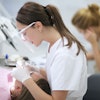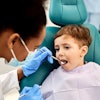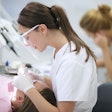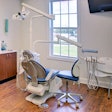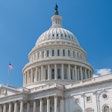The ADA reaffirmed its position that the midlevel dental provider (MLP) model is not economically viable despite a new report by the Pew Center on the States which found that dental therapists (DTs) could greatly improve access to care via school-based programs run by federally qualified health centers (FQHCs).
The ADA recently released a series of reports that found that the MLP model is not economically realistic or sustainable.
"The ADA believes that both reports show that dental therapist models would take large financial commitments while returning questionable results," according to a statement sent to DrBicuspid.com.
The ADA pointed out that the Pew report found only "modest effects" from using DTs in existing, fixed-site FQHCs.
However, the Pew report also concluded that deploying DTs in school-based programs run by FQHCs has the potential to increase access to care for Medicaid-enrolled children by nearly 20%, bringing it in line with that of privately ensured children.
Pew researchers estimated that using DTs and allied providers in school programs could make dental care available to 6.7 million additional Medicaid-eligible children at significantly reduced costs.
But the ADA reiterated its opposition to allowing MLPs to do restorations and extractions.
"To the extent that workforce additions can help us break down some of the barriers that impede Americans from attaining optimal oral health, allowing nondentists to perform irreversible surgical procedures is not the way to go," the ADA said.
The ADA noted that it has developed a curriculum to train Community Dental Health Coordinators (CDHC): "CDHCs are already working in underserved areas providing critical education and preventive services and acting as patient navigators to help people needing restorative care receive that care from fully trained dentists."
An evaluation of the CDHC's impact on increasing access for the underserved is under way, the ADA said.
The ADA agreed with the Pew report's recommendation that states must work with FQHCs to identify ways to fill the unmet need for dental care. An example of such collaboration is the ADA's joint effort with the National Association of Community Health Centers to encourage contracting between health centers and private dentists, according to the statement.
"The ADA is eager to work with Pew and other organizations on repairing the tattered oral health safety net, but that cooperation requires that all stakeholders have a global understanding of the issues. Breaking down multiple barriers calls for multiple solutions," the ADA statement concluded. "Oral health disparities are a complex set of problems that must be addressed by incorporating real solutions like Medicaid reforms, universal community water fluoridation, oral health education, and helping people overcome cultural, geographic and language barriers."
